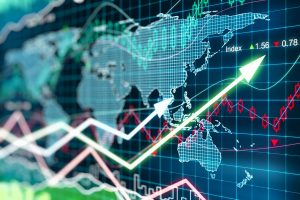
The last three years have been relatively crisis-free for global markets, despite all sorts of drama.
Until recently, and for approximately three years, Chief Economist Sergei Guriev was the Chief Economist for the European Bank for Reconstruction and Development (EBRD), and he was the latest guest on EBRDs podcast Pocket Dilemmas.
Guriev looked back on his three-year run, including commenting on global markets.
“In the last three years, we didn’t have (a) major crisis in emerging economies like in 1997 or 8; we also did not have a major crisis in developed economies like 2008 or 9, but we did have a couple of crisis in some emerging economies, mostly Argentina and Turkey.”
In Argentina, Guriev said that this was due to the lack of reforms of the previous government and in Turkey, it was made by unforced errors of the government.
Guriev said the key to turning developing economies into developed economies is, “If you want to catch up with the advanced economies, you reform, you invest in human capital, you improve governance, you integrate into the global economy.”
Guriev also said that much of the wave of populist politicians in Europe largely failed.
“We’ve also seen in our countries, and not only in our countries, that some of those leaders are corrupt or incompetent or both.”
One anomaly was Poland, a populist government that has delivered on reform.
According to the website The First News, Poland’s economy has seen significant growth.
“In the third quarter of 2019, Poland’s economy grew by an annual 3.9 percent, with a quarter-to-quarter figure standing at 1.3 percent,” The First News stated in an article from January 1, 2020, “the highest in the whole of the EU and over four times better than the EU average of 0.3 percent.”
The article continued, “In October, the International Monetary Fund, revised upwards Poland’s 2019 economic growth forecast to 4 percent from the 3.8 percent it made in the previous growth estimates. This is roughly in line with predictions of local economists, who expect the Polish Gross Domestic Product (GDP) to come in at around 4.0-4.2 this year.”
But Guriev said all the other populist governments who have recently swooped in have failed.
“Everything else, every other populist government has actually underperformed the counterfactual or the comparables,” Guriev noted further.
Guriev said this fairness and inclusion are the keys to market reform sustainability, “That’s why we over the last few years brought in the aspects of governance and inclusion into our transition concept, into our definition of sustainable market reforms.”
Guriev also commented on Vladimir Putin’s recent statement that liberalism is obsolete.
In July, in an interview with the Financial Times, Putin said, “liberalism has outlived its purpose,” continuing by saying that liberalism conflicted with, “the interests of the overwhelming majority of the population.”
European liberalism is a political movement that champions individual liberties and constitutionally limited and democratically accountable governments.
Guriev said that Putin has been all over the map on everything.
“In those twenty years (Putin has been in power), he has said pretty much everything- every combination of words you can find in a speech, in a textbook, in a campaign platform, he’s supported liberalism, he’s rejected liberalism.”
Guriev said he wouldn’t be surprised if soon, Putin would say, “We should support markets, democracies, fight corruption and so on.”
The EBRD, “was set up in haste to meet the challenge of an extraordinary moment in Europe’s history, the collapse of communism in its East. In fact, a mere 18 months elapsed between the first mooting of the idea of a European development bank, by President François Mitterrand of France, in October 1989 and its opening for business with headquarters in London in April 1991,” according to its website.
Also, on the website, it noted, “The European Bank for Reconstruction and Development (EBRD) was established to help build a new, post-Cold War era in Central and Eastern Europe. It has since played a historic role and gained unique expertise in fostering change in the region – and beyond -, investing more than €130 billion in a total of over 5,200 projects.”












